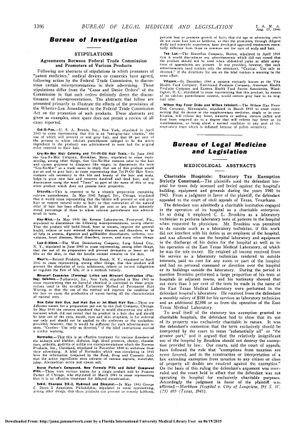Bureau of Investigation: Agreements by Promoters of Patent Medicines, Medical Devices, and Cosmetics Following FTC Actions (1944-1945)
August 1946
in “
Journal of the American Medical Association
”

TLDR Companies agreed to stop making false health claims about their products.
The document outlines various stipulations agreed upon by promoters of patent medicines, medical devices, and cosmetics following actions by the Federal Trade Commission (FTC). These agreements, made between 1944 and 1945, required companies to cease making false claims about their products. For example, U.S.A. Brands, Inc. agreed to stop advertising Cal-D-Pan as an "anti-gray-hair vitamin," and the Gra-No-Mor Company agreed to stop claiming their products could restore hair color or promote hair growth. Other companies, such as Spiegel, Inc. and Keenan Laboratories, also agreed to discontinue misleading advertisements about their products' health benefits. The document highlights the impact of the Wheeler-Lea Amendment to the FTC Act in curbing false advertising practices.




